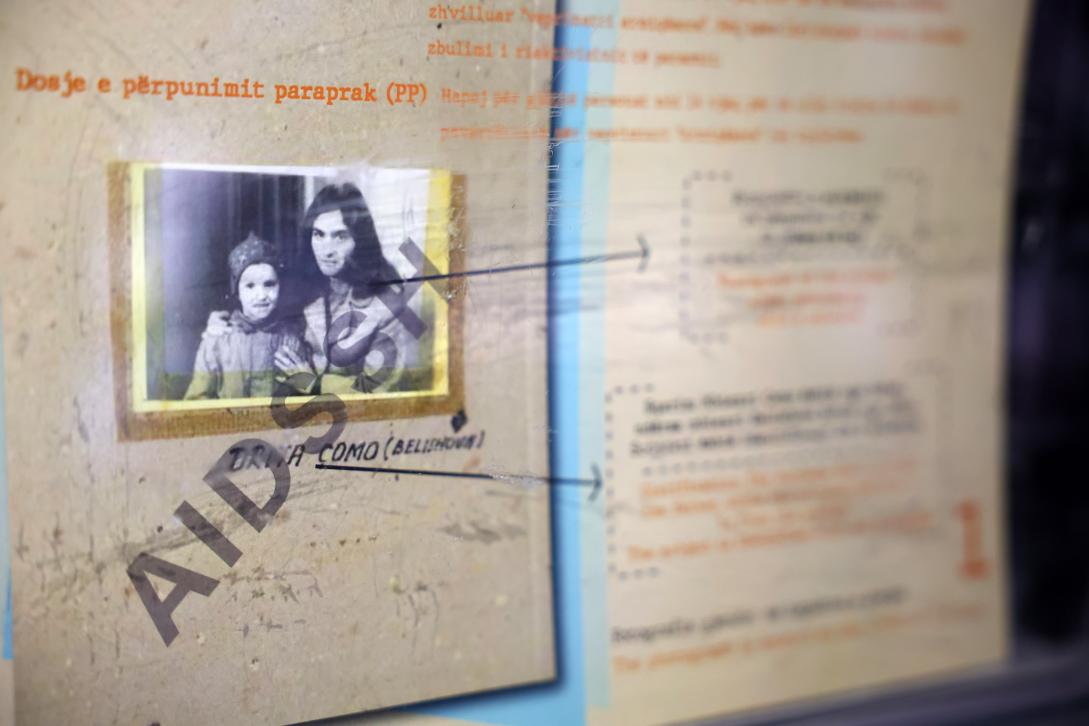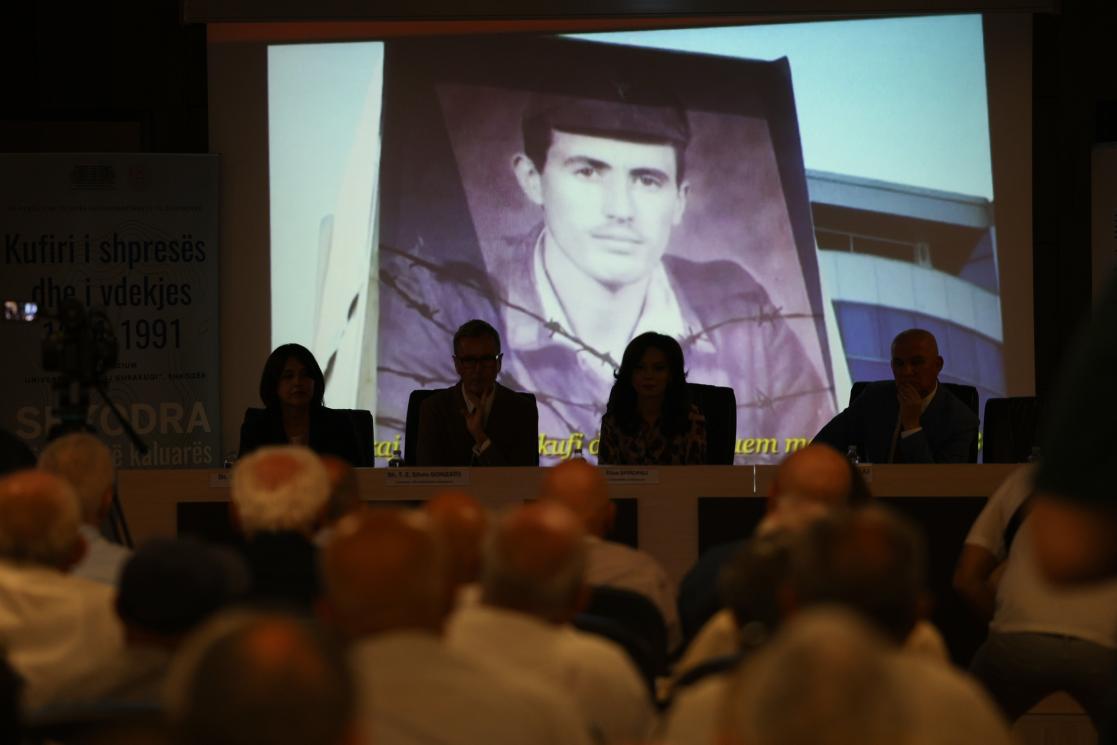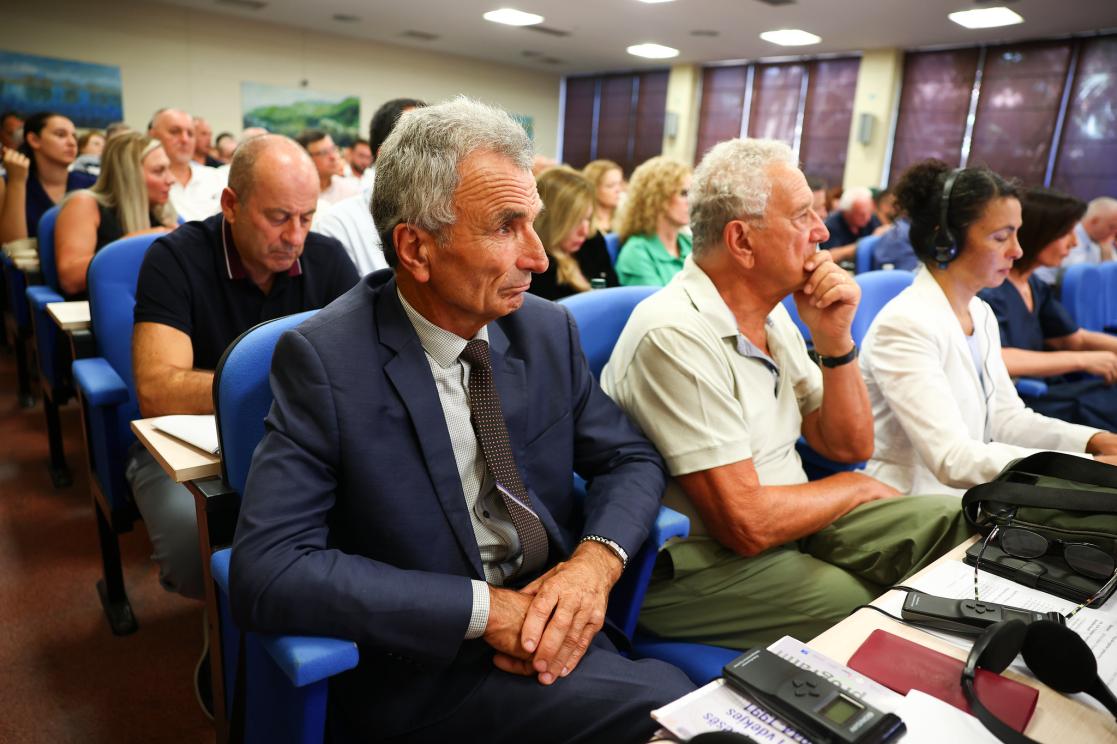From silence to justice: EU-backed efforts to identify victims of Albania’s dictatorship

On the evening of 17 May 1990, 35-year-old Gjok Beqi and his younger brother Vat, aged 25, entered the waters at Vilun, in Velipojë, and began swimming towards the island of Ada Bojana in Montenegro. Albania was still under dictatorship, and the two had decided to escape. They had planned everything in detail.
The Beqi brothers had chosen an area hidden from the soldiers’ eyes and timed their attempt to coincide with the guards’ shift change. They stripped off their clothes, smeared themselves with axle grease to withstand the cold, and took a small float with them to rest on if needed. They swam 5 km away from the shore to avoid detection, keeping parallel to the coastline so as not to lose their bearings. They had thought of everything, except the searchlights that swept the sea at night.
“We had swum for hours, thinking that 5 km from the shore they would not see us with the searchlights. But they spotted us and came towards us by boat. I heard a volley of bullets; two of them hit me, one in the shoulder and one in the jaw. I lost consciousness, and it was my brother who dragged me to shore. On the shore, the commander shot my brother dead. Thinking I was almost gone, he spared me,” recalls Gjok Beqi, now 70 years old.

EU Delegation to Albania
He remembers being told that soldiers covered him and his brother with a cape before running to the ward to call the internal medicine operating group and the ambulance, which took both brothers to the morgue. There, it was discovered that Gjok was still alive, with a pulse. He was rushed to intensive care and underwent surgery to remove the bullets. “The doctors did an extraordinary job under police surveillance, because the bullet in my jaw had passed close to my neck—I could easily have been paralysed or suffered serious mental health problems,” Beqi recounts.
He regained consciousness two days later. “My other brother came to visit, and I called him Vat. He answered me as though he was Vat. I didn’t know Vat had died. I remembered him alive, before the shooting, and I had no knowledge of anything after that. I only realised Vat was dead when my sisters came to visit me, dressed in black. At that moment, I understood what had happened—what I had done. I had lost Vat, my younger brother, full of life and dreams of becoming a boxing champion. I thought, how would I face my father? I was responsible for Vat. I was his older brother,” Gjok recalls, weeping. In that moment, he became a helpless child, tormented by what he might have done differently.
“My brother was killed on the shore—he was unarmed. That’s what I later learned from the young soldiers. We had decided to escape at that time because, after the visit of UN chief Javier Pérez de Cuéllar, the situation seemed to be changing. The law had shifted: no longer ‘high treason against the homeland’, but ‘illegal border crossing’. It was believed that those who tried to escape would no longer be killed. At worst, they would be imprisoned, but their families would not be deported. It was a trap. And we fell into it. My brother paid with his life,” says Beqi.
He was tried and imprisoned while still recovering. But he is grateful for one thing: “My family was able to retrieve my brother’s body and bury him properly. Until then, bodies were never returned to families; they simply disappeared. For this, I am indebted to my dead brother’s friends. They protested outside the Department of Internal Affairs, demanding the body. Some were arrested and tortured, but they did not back down. Other citizens joined them, until finally the body was released to the family.”
Now head of the “16 June” Association, Beqi represents the interests and demands of families who lost children and relatives in border killings during the communist period. “The name of the association comes from the date a young boy, Nikollë Pellumbi, was killed at the border while trying to escape,” he explains, adding: “More than 30 people were killed during 1989–1990 alone, while in total we estimate that around 900 citizens were killed on the Shkodra region borders during the regime.”
Beqi’s own family suffered further losses: one of his uncles was killed in the Buna River in 1954 while trying to escape, another died in Burrel Prison, and his body has never been found.
Since 2017, the European Union in Albania has supported efforts to identify missing persons who disappeared under the communist regime. This work has been carried out together with the International Commission on Missing Persons (ICMP), the Authority for Information on Former State Security Documents, and civil society organisations—seeking to improve coordination and raise public awareness.

EU Delegation to Albania
On the International Day of the Disappeared, EU Ambassador Silvio Gonzato stressed: “For Albania, confronting the legacy of border killings and enforced disappearances under the communist regime is a question of dignity, of justice, and of building trust between citizens and institutions. Addressing the past requires political will, a functional legal framework, and, above all, concrete action by the relevant Albanian institutions to ensure the law is implemented. We urgently need the Council of Ministers to adopt a coordinating mechanism between the relevant actors that allows the search and excavation of persons killed during the communist regime. Confronting the past is a collective responsibility, where everyone has a role to play.”

EU Delegation to Albania
At a symposium held in Shkodra to honour those who lost their lives at the borders and those still missing, several cases were brought to light—mothers, fathers, children, nephews and nieces all in search of human remains, truth, and justice.

EU Delegation to Albania
Pellumb Dedndrejaj, whose family was torn apart, told the story of his grandmother, who fought to save her seven-month-old son. “My grandfather escaped in 1948 together with the famous writer Martin Camaj, the priest Ambroz Martini, and 30 others. Two weeks later, my grandmother Bute was interned in Berat with her seven-month-old son, leaving her two other children behind in Lekbibaj village, Tropoja, with a paralysed cousin. Due to malnutrition and terrible conditions, children in Berat were dying and being buried on the banks of the Osum River, their remains carried away by the water,” Dedndrejaj explains.
When her baby fell ill, his grandmother decided to escape the camp to save him. “She fled at night, slept in cemeteries, ate corn cobs, and after 18 days of walking in hiding, she finally arrived at her village in Tropoja. The security forces arrested her again and tried to send her back into internment with her son. But two locals intervened. They promised to keep her baby safe, taking him to the paralysed cousin in the village, while she was sent to Tepelena camp,” Dedndrejaj recounts.
The three children were raised without either parent until 1954, when their mother returned. They never saw their father again. His three attempts to bring them across the border failed. His letters home never arrived—they remained locked away in a Security Police file until the family recovered them two years ago. “Bute Dedndrejaj saved her son from death, but she could not give him her presence or a normal childhood,” says her grandson.
BACKGROUND INFORMATION
Since 2017, the European Union is supporting Albania to find the missing persons during the communist regime, by empowering the security of files’ technical capacities, awareness-raising prerogatives and by increasing its coordination role. The International Commission on Missing Persons (ICMP) implemented two projects for a total of approximately 1M€ EU contributions. A new project on “Supporting transitional justice and dealing with the past in Albania” with ICMP, started in February 2024 and aims to increase the engagement of the Albanian state institutions in resolving missing persons issue as a legacy of the past and increase social cohesion in Albania.





